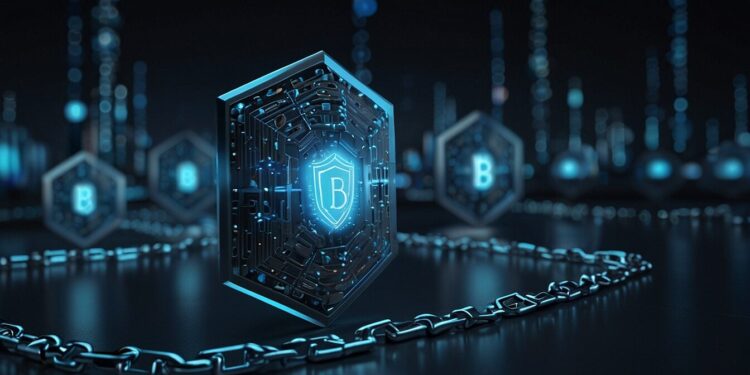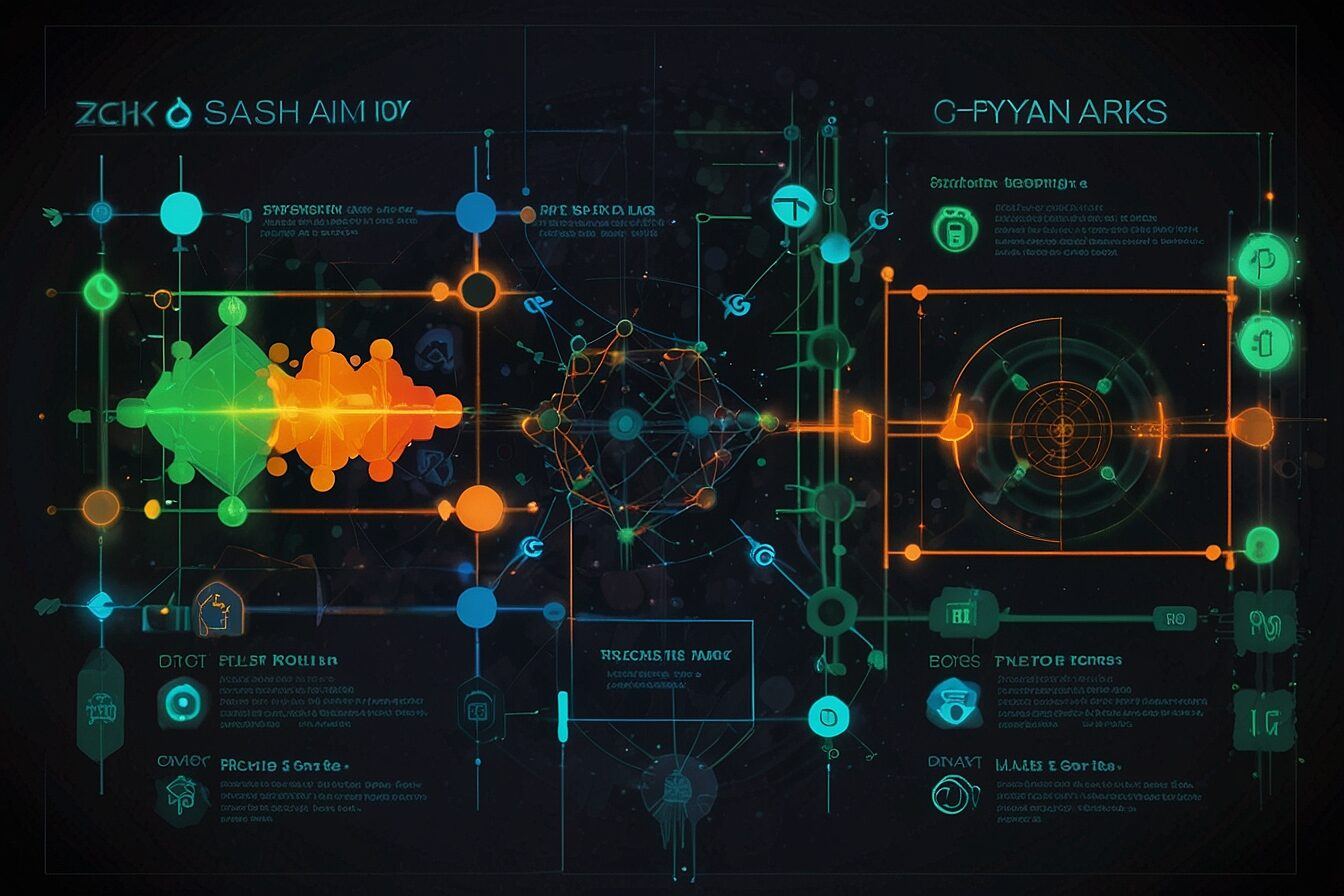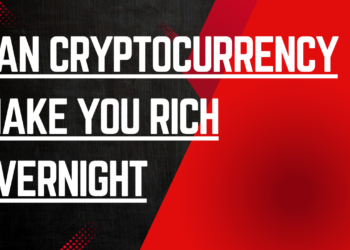In a world where our lives are increasingly digital, protecting personal data and sensitive information has never been more important. Every time we prove our identity, complete a transaction, or access a secure system, we often reveal far more information than is strictly necessary.
Zero-knowledge proofs (ZKPs) offer a powerful solution to this challenge. A ZKP is a cryptographic method that allows a prover to convince a verifier that a statement is true without disclosing any additional information beyond the validity of the claim itself.
In this article, we explore what ZKPs are, how they work, their practical applications today, and how they could redefine privacy, security, and scalability in blockchain, finance, identity systems, and beyond.
What Are Zero-Knowledge Proofs and Why Do They Matter?
Imagine you want to prove to a friend that you possess a secret without revealing what that secret is. That is the essence of zero-knowledge proofs.
A common analogy is the red card proof. Suppose you draw a card from a deck and claim it’s red. Instead of showing the card, you reveal all the black cards in the deck. Your friend sees the black cards and logically concludes that your hidden card must be red. You’ve proven your claim without revealing the specific red card or any other unnecessary information.
This simple example illustrates how ZKPs allow proofs without disclosure. The technology was first introduced in 1985 by cryptographers Shafi Goldwasser, Silvio Micali, and Charles Rackoff. Since then, ZKPs have evolved into a practical tool for enhancing digital privacy and security.
The Cryptographic Principles Behind ZKPs
Zero-knowledge proofs work because they adhere to three core principles:
- Completeness: If the prover’s statement is true, an honest verifier will be convinced.
- Soundness: If the prover’s statement is false, a dishonest prover cannot convince the verifier.
- Zero-knowledge: The verifier learns nothing beyond the fact that the statement is true.
These principles are achieved using advanced mathematics, including elliptic curve cryptography, polynomial commitments, and hash functions.
There are two main types of ZKPs:
- Interactive ZKPs, where the prover and verifier engage in multiple rounds of communication.
- Non-interactive ZKPs, where the prover sends a single proof that can be verified independently without further interaction.
Non-interactive ZKPs are especially important for blockchain applications, where efficiency and scalability are critical.
Real-World Applications of Zero-Knowledge Proofs
ZKPs have moved far beyond theory. They are actively reshaping industries and technologies today.
1. Privacy Coins
Zcash uses ZKPs in the form of zk-SNARKs (Zero-Knowledge Succinct Non-Interactive Argument of Knowledge). These proofs allow transactions to be verified without revealing sender, receiver, or transaction amounts. Zcash users can choose between:
- Transparent transactions, similar to Bitcoin
- Shielded transactions, which hide all transaction details using ZKPs
This gives users control over their privacy while maintaining network security.
2. Layer-2 Blockchain Scalability
Projects like StarkNet, zkSync, and Polygon zkEVM use zk-rollups. A zk-rollup bundles hundreds of transactions into a single proof that is submitted to the main blockchain. This approach:
- Reduces gas fees
- Speeds up transaction processing
- Maintains Ethereum-level security
ZKPs in rollups offer both scalability and privacy improvements.
3. Central Bank Digital Currencies (CBDCs)
CBDCs aim to provide digital versions of national currencies. However, they must balance privacy with compliance. ZKPs could allow:
- Individuals to make private transactions
- Regulators to verify compliance without exposing user data
While no CBDC at scale uses ZKPs today, pilots like Sweden’s e-krona and the European Central Bank’s digital euro have explored this technology.
4. Digital Identity and Access Control
With ZKPs, users could verify their eligibility to access systems, services, or locations without exposing personal information.
For example:
- Proving age without sharing a birthdate
- Proving residency without revealing address
- Proving membership in an organization without disclosing identity
These applications could transform online authentication and access systems.
5. Secure Voting Systems
ZKPs could help build digital voting platforms that guarantee:
- The voter is eligible
- The vote was counted
- The voter’s choice remains secret
This ensures both integrity and privacy in elections.
Technical Deep Dive: zk-SNARKs, zk-STARKs, and Beyond
Zero-knowledge proof systems have evolved into several variants, each with different strengths.
zk-SNARKs
- Require a trusted setup to generate initial parameters
- Extremely compact proofs (succinct)
- Fast verification
- Used in Zcash, Aztec Protocol
zk-STARKs
- Do not require a trusted setup
- More transparent and secure
- Larger proof sizes, but increasingly optimized
- Resistant to quantum attacks
zk-Rollups
- Use either zk-SNARKs or zk-STARKs
- Bundle transactions for layer-2 scalability
- Examples: zkSync, StarkNet
zk-EVMs
- Zero-knowledge compatible versions of the Ethereum Virtual Machine
- Allow Ethereum smart contracts to run with ZKP privacy or scalability
- Examples: Polygon zkEVM, Scroll, zkSync Era
These technologies are advancing rapidly, with zk-STARKs gaining popularity for their transparency and quantum resistance.
Benefits of Zero-Knowledge Proofs
ZKPs provide powerful advantages across industries:
- Privacy: Prove facts without revealing underlying data
- Security: Reduce exposure of sensitive data to potential attackers
- Regulatory balance: Comply with laws without unnecessary data disclosure
- Scalability: Enable high-throughput systems via zk-rollups
- Trust minimization: Build systems that rely on math, not middlemen
These benefits are particularly crucial in industries like finance, identity management, healthcare, and supply chains.
Limitations and Challenges
Despite their promise, ZKPs face some challenges:
- Complexity of implementation: Building and auditing ZKP systems requires advanced cryptographic expertise
- Computational cost: Some ZKPs require significant processing power, though newer designs are improving this
- Trusted setup (for some types): If compromised, the initial setup could undermine security
- Proof size and speed trade-offs: STARKs have larger proofs but avoid trusted setups; SNARKs have small proofs but need trusted setup
Ongoing research is focused on addressing these limitations.
Emerging Applications Beyond Finance
The potential of ZKPs extends beyond cryptocurrency:
- Healthcare: Share proof of insurance or vaccination status without revealing medical records
- Supply chain: Prove authenticity or ethical sourcing of products without exposing proprietary data
- IoT devices: Verify device identities and secure communications without exposing vulnerabilities
- Cloud computing: Prove data integrity or computations without exposing data itself
As digital systems become more complex, ZKPs offer a pathway to secure, private, and verifiable interactions.
The Future of Zero-Knowledge Proofs
Zero-knowledge proofs are likely to play a central role in building the next generation of digital systems. In crypto, they will enable scalable, privacy-preserving blockchains that are more efficient and inclusive. In digital identity and beyond, they offer a way to build trust while respecting privacy.
The road ahead includes:
- Easier-to-implement ZKP frameworks
- Wider adoption in DeFi and Web3
- Integration into real-world CBDCs
- Use in non-financial sectors like healthcare and voting
With ongoing improvements, ZKPs could become a default standard for privacy and trust in the digital world.
Zero-knowledge proofs represent one of the most promising innovations in modern cryptography. They provide a solution to one of the digital age’s greatest dilemmas: how to verify the truth of statements or transactions without revealing unnecessary information.
As the technology matures, ZKPs will likely become a cornerstone of privacy-first, trustless systems across finance, identity, healthcare, supply chains, and beyond. In an era defined by digital interactions, zero-knowledge proofs offer a way to safeguard privacy while preserving integrity, a critical balance for the future of the internet.










